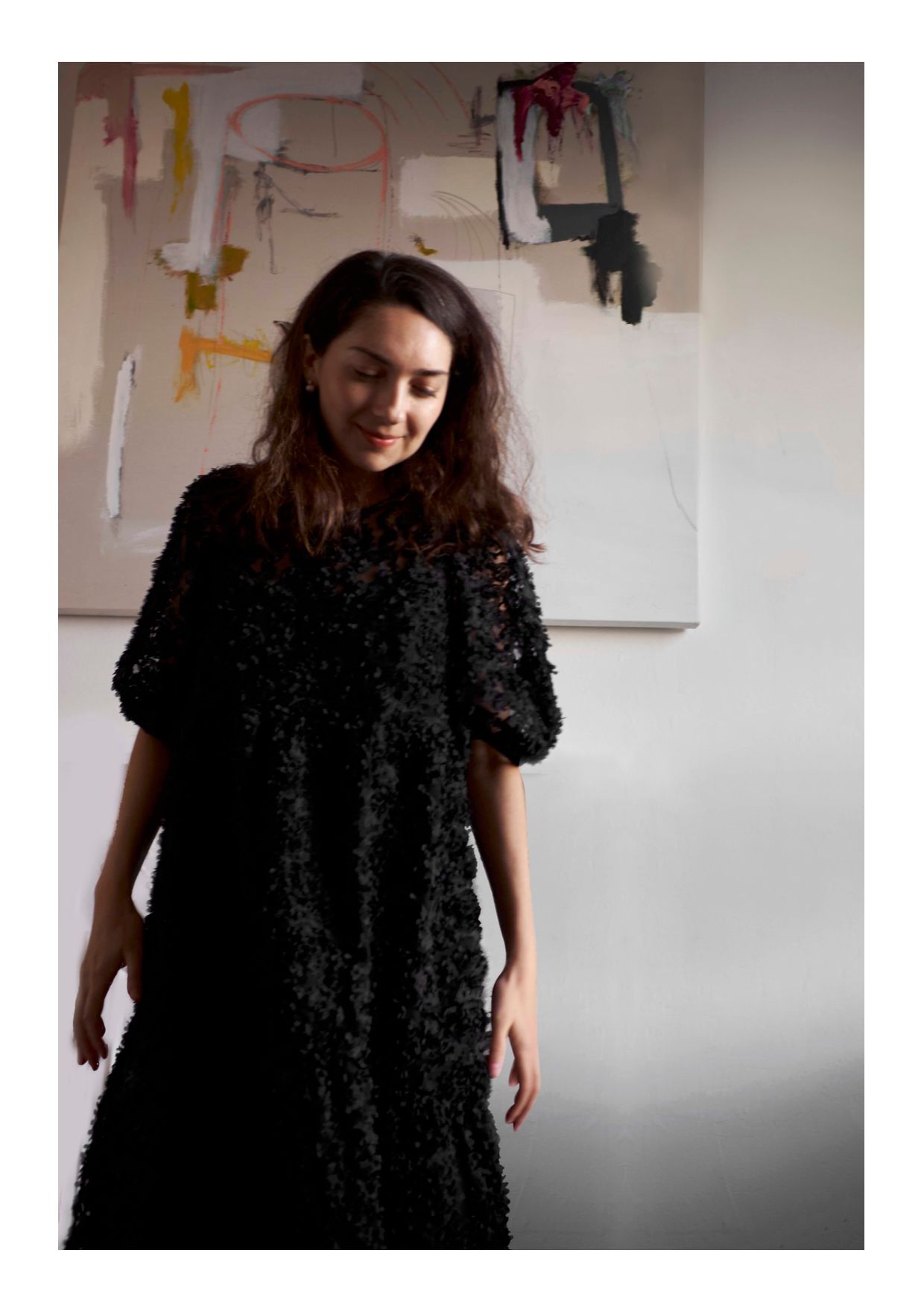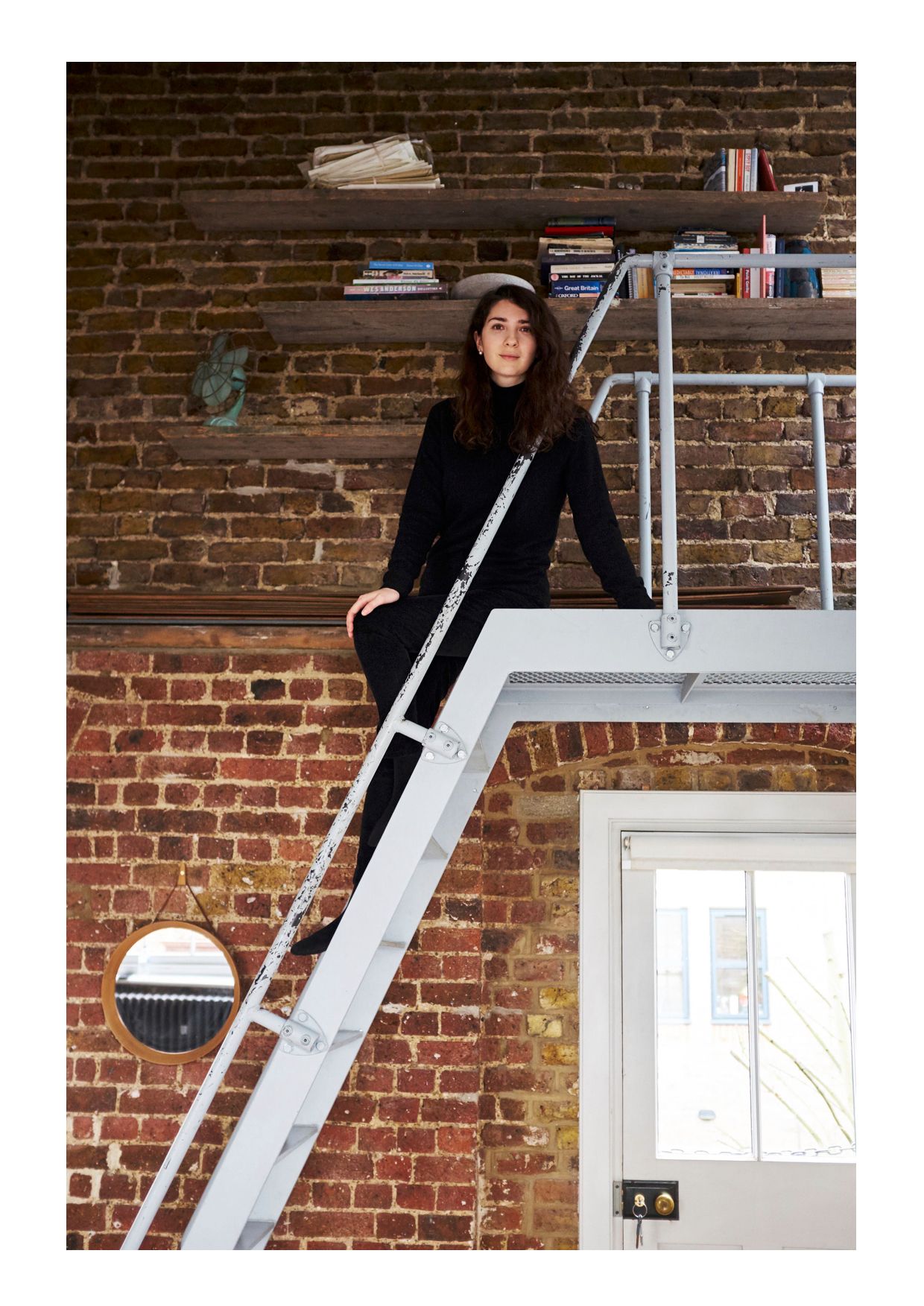
Natasha Arselan is the Essex-born founder of AucArt, a platform that seeks to fundamentally transform the traditional art auction–switching it to a more democratic model in which anyone with an interest in art can participate. AucArt launched in 2017 and quickly became known for championing the work of early career artists, with its founder soon being interviewed for the prestigious likes of Harper’s Bazaar. In its short life so far, AucArt has become synonymous with presenting established names alongside exceptional recent graduates, and enabling collectors anywhere in the world to buy works directly from an artist’s studio. Here, the young entrepreneur with an eye for talent tells Collective Culture how art has helped her forge her identity, and why it’s important to always remain calm in the eye of the storm.
What would you say spurred your passion for art?
I think I was always drawn to art because it helped me to contextualise my feelings, or what I was going through in an unspoken way. I feel that I actually got to know myself better through art, and it has shaped my understanding of the world–it has brought me joy, and has helped me escape the mundane in certain ways. I always have a very different experience of time when I go into an artist’s studio–I will often feel like I've been there for half an hour, and suddenly realise it's actually been three hours. I think great art just has an energy and presence–I remember when I moved into my new apartment and everything was bare–as soon as I put artwork up on the walls, there was this wonderful sense that I wasn't alone.
How did the journey of AucArt begin?
I suppose it began when one of my friends called me and told me he had run out of money for his degree show–he asked me to go to his studio with an eye to buying work. I walked through all the student studios and it was just incredible to see all these booths of amazing work–almost like an art fair. I thought to myself, why is it that only I have access to this, how can I give other people access? The artist who invited me actually created a kinetic sculpture with the money I gave him, and when I saw it for the first time I had this sense of pride that I had actually helped someone. It was really the first time I had felt a sense of purpose, and that was a feeling I then wanted to duplicate–it all kind of started happening through that experience.
It sounds as though it’s much more than a business for you…
I think being of service in some way to people is just the best feeling in the world. AucArt are working on multiple charity auctions at the moment–we recently did one for the Stephen Lawrence Foundation, and hosted a great benefit sale for Impact Lebanon. I'm trying to do more of that. I just want to wake up in the morning doing something I believe in. One of the reasons I wanted to create AucArt was to build a platform that offered equal access for everyone. I wanted to create a global network where you could buy directly from the studio anywhere in the world. In the old days, to be able to bid in certain auctions, you had to submit your bank details, and it all felt very closed. AucArt is a platform where all the prices are visible and everyone can participate.

Are work and your identity inextricably linked?
I always used to think that my work was a massive projection of who I am, and that, in a way, I was my work, but what I've learned over the pandemic is that it is really unhealthy to perceive things in that way. Now, I see myself as something separate from the company. It's as though whatever criticism may come–or whatever happens with the company–it's never a direct attack on me. I do think, however, that whenever I create my values are naturally intertwined–I do sew part of my soul in there. I meditate every day and I think cultivating self-awareness is so important, because you can only be responsible for you. If you're connected with yourself, you are going to be the best version of yourself, and listen more closely to your inner voice. I believe we all have a light, and, for me, it's about keeping that light on through all the chaos and turbulence.
All images courtesy of Natasha Arselan